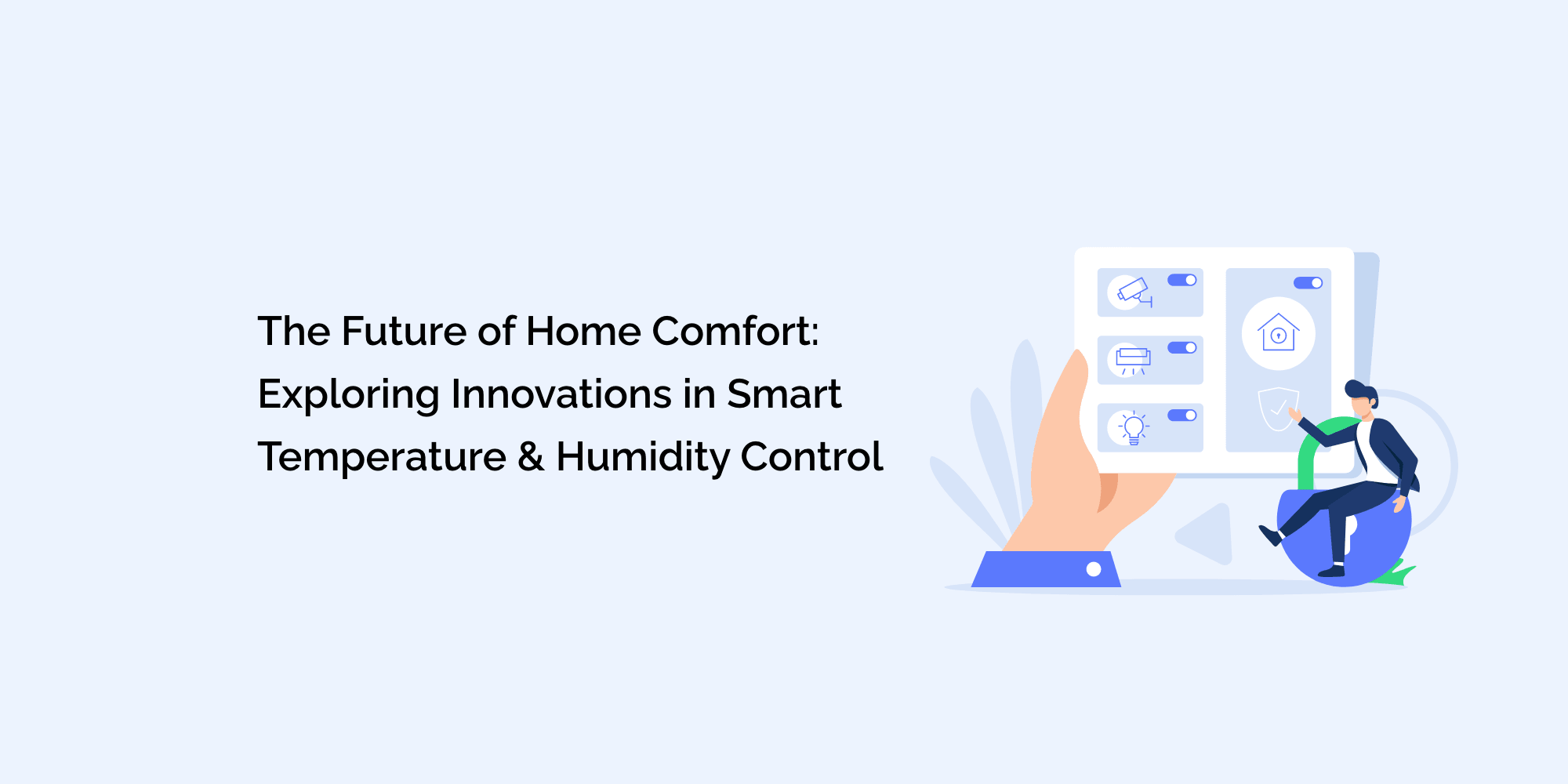The future of home comfort is an exciting realm where technology seamlessly merges with everyday living. Smart temperature and humidity control, once seen as a convenience, is now evolving into an integral aspect of modern living. This blog delves into the cutting-edge innovations that are shaping the future of home comfort, offering a glimpse into a world where intelligent climate control not only enhances our surroundings but also transforms our way of life.
Artificial Intelligence (AI) and Machine Learning:
-
Adaptive Algorithms: AI-powered systems learn user preferences and automatically adjust conditions.
-
Behavior Prediction: AI can predict preferences based on historical data and external factors.
- Energy Optimization: AI-driven systems optimize settings for energy efficiency without sacrificing comfort.
Predictive Climate Control: Anticipating Your Needs:
-
Weather Integration: Systems use real-time weather data to adjust indoor conditions proactively.
-
Occupancy Prediction: Predictive models determine occupancy patterns for optimized comfort.
- Time-of-Day Adjustment: Smart systems anticipate changes in temperature and humidity throughout the day.
Voice and Gesture Control: Elevating Interaction:
-
Voice Assistants: Voice commands control temperature and humidity settings, creating a hands-free experience.
-
Gesture Recognition: Sensors detect gestures for immediate climate adjustments.
- Accessibility: These intuitive controls make temperature management effortless.
Sensor Fusion: A Holistic Approach:
-
Multi-Sensor Integration: Multiple sensors gather comprehensive data for enhanced climate control.
-
Data Fusion: Combining data from various sensors creates a more accurate and nuanced understanding of conditions.
- Precise Adjustments: Sensors work in harmony to maintain optimal comfort.
IoT and Connectivity: Expanding Horizons:
-
Interconnected Devices: Smart home devices collaborate for a cohesive climate control experience.
-
Seamless Integration: Temperature and humidity management integrates with lighting, security, and more.
- Remote Access: Users control conditions from anywhere, enhancing convenience.
Biofeedback and Personalization: Comfort Tailored to You:
-
Biometric Data: Wearable devices provide real-time biometric data to adjust climate based on personal preferences.
-
Mood-Enhancing Environments: Personalized settings create atmospheres that boost mood and productivity.
- Wellness-Centric Design: Homes become nurturing environments that adapt to occupants' well-being.
Nanotechnology and Materials Science: The Future of Building Materials:
-
Thermally Adaptive Materials: Nanomaterials adjust their properties based on temperature.
-
Energy-Efficient Construction: Smart materials contribute to energy-efficient homes.
- Dynamic Architectural Elements: Buildings can respond to external conditions for optimal comfort.
Quantum Computing: Redefining Precision:
-
Complex Calculations: Quantum computers analyze vast data sets for highly accurate climate adjustments.
-
Energy Efficiency: Quantum algorithms optimize conditions for minimal energy consumption.
- Rapid Analysis: Quantum computing reduces response time for real-time climate control.
Conclusion: The Horizon of Comfort Unveiled:
As we stand at the threshold of the future, the vision of home comfort is exhilaratingly transformed. The innovations in smart temperature and humidity control transcend mere convenience, ushering in a new era where our living spaces adapt, respond, and nurture our well-being. From AI-driven algorithms to quantum computing precision, the future of home comfort is a symphony of technological brilliance, resonating with the melody of sustainability, personalization, and a reimagined way of living.








